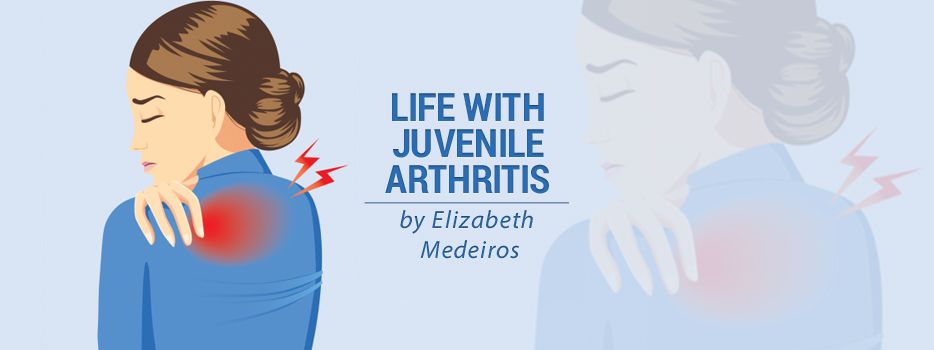When I returned home from the hospital after my first major juvenile arthritis flare, my parents had to move around some items to make the house more accessible while my movement was limited. For example, my beloved pet hamster Stuart was moved upstairs from the family room to my room so he could keep me company.
I ended up needing more help than we had anticipated in surprising areas. While most of my things were on the house’s main level or in my room for easy access, we didn’t consider the positions of things, especially my toys. I remember seeing my Barbie doctor play set and needing to play with it, which required a long time to ease myself onto the floor. Once I was down there, I wasn’t very comfortable and didn’t want to play anymore.
When it hurts to play
Kids with JA can be pretty hardy and push through the pain to play, unless they’re feeling too ill or fatigued. That said, they may obviously favor a joint, be reluctant to use one side of their body, or find comfortable positions to play in, such as playing with toys on the couch.
Young kids with JA may find it painful to play on the floor, due to sitting on a hard surface for long periods and having to stand up and sit down repeatedly.
Thinking back on my experiences, so many unexpected furniture pieces made play during or after a flare easier. If I were in charge of designing a playroom for a child with JA, the following are some of the features I would include:
Foam for pain-free floors
Foam has come to my rescue more than I give it credit for. My most comfortable sneakers all have had foam rather than plastic soles. And using foam garden kneelers at church has saved my knees from a lot of pain after prayer.
Whether or not your child has play sets that sit on the floor, putting down foam mats can help make sitting and kneeling more comfortable. It’s much easier on joints than carpet.
Another option is to give them some foam kneelers for gardening, which you can find at dollar stores. You can have them stack a few to create a little seat (something I’ve done many times, which has been a lifesaver) or move them around as they shift from activity to activity.
Plenty of seating options
I’m about to age myself, but I had a little pink Hilary Duff stool that my mum gave me when I was small. I don’t think we got rid of it until I was much older because of how handy it was.
It was nice and low to the ground, so I could still play games like jacks on the floor while seated. And it was perfect for transitioning to or from the floor when my hips were at their worst.
You may also consider providing a yoga ball for your child to sit on. Sitting on a ball can help build a lot of core strength. You can also bounce on it, which can help prevent stiffness.
Play tables
Sometimes floor play can be very uncomfortable for kids, even with a soft surface. Many kids may find it easier to sit at the table to play. You may want to offer a small table for them to use, or consider raising frequently used play sets, such as dollhouses, with a small table. It doesn’t have to cost a lot of money; a secondhand coffee table or end table will do.
After my first flare, when I found it very difficult to sit down on the floor, I stopped playing with the play sets that required floor space until my joints felt better. Instead, I favored the dollhouse I had nestled on a small end table, because I sit on a chair or even stand to play with it.
What else?
Especially after recovering from my flare, I found all those items necessary to play for long stretches without feeling too much pain. I also found having smaller bins in a cubby for toy storage was easier than one big toy chest, because I didn’t have to reach, bend, or kneel as much to collect the pieces I needed for a game.
Of course, every child will have different needs. In fact, their toy choice may even be affected by JA, such as favoring bigger dolls over Barbies because it’s easier to dress them and put on their tiny shoes. At the end of the day, all that matters is that kids with JA have the tools they need to play, forget about the pain, and just be kids.
***
Note: Juvenile Arthritis News is strictly a news and information website about the disease. It does not provide medical advice, diagnosis, or treatment. This content is not intended to be a substitute for professional medical advice, diagnosis, or treatment. Always seek the advice of your physician or other qualified health provider with any questions you may have regarding a medical condition. Never disregard professional medical advice or delay in seeking it because of something you have read on this website. The opinions expressed in this column are not those of Juvenile Arthritis News, or its parent company, BioNews, and are intended to spark discussion about issues pertaining to juvenile arthritis.

